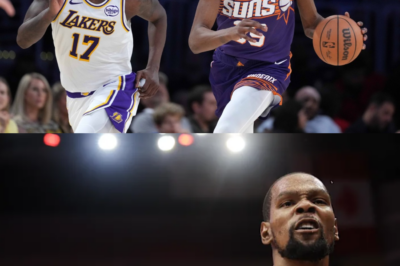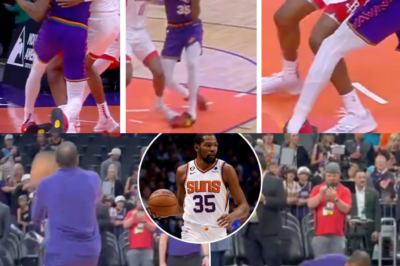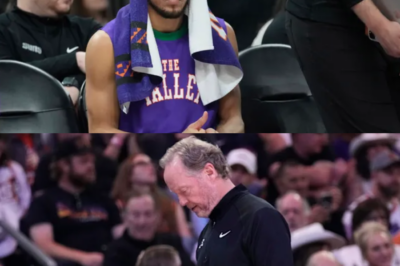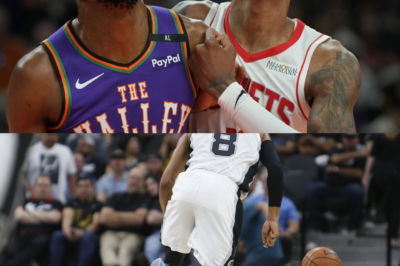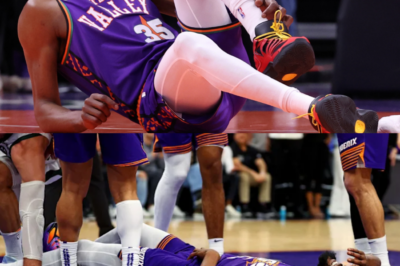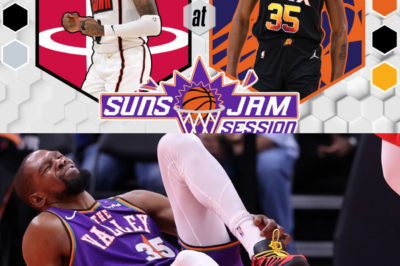“It was too close, and I couldn’t control my emotions” – Michael Jordan reveals why he challenged Hornets players in practice
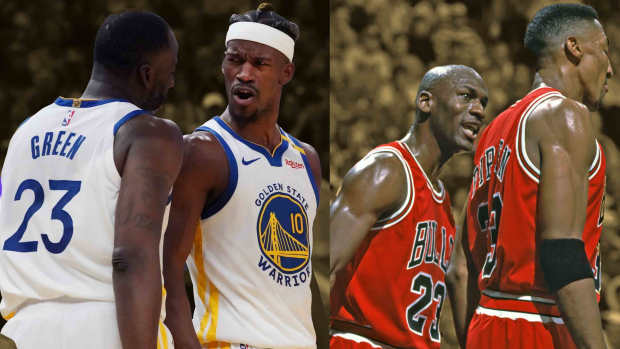
Jordan explains why he would hit the practice floor with Hornets players.
Michael Jordan never learned how to lose quietly. Not as a player. Not as an owner. And certainly not when his Charlotte Hornets spiraled through years of mediocrity. MJ bought the Hornets in 2010, stepping into a different kind of pressure. He could no longer control the game from the floor, but the urge to compete never left.
Charlotte struggled through most of his tenure. Roster instability, front-office missteps, and a revolving door of coaches kept the team trapped in NBA purgatory.
Jordan’s competitive nature
But the six-time champion didn’t sit idly by. He couldn’t. When the losses started to pile up, “Mr. Air” found his way of coping — by lacing up his sneakers and joining his players on the practice court, even at over 50.
“I’m in it for the long haul,” Jordan said. “I was frustrated. For a guy who played the game of basketball, I could only do so much sitting in that [owner’s] seat. It was too close, and I couldn’t control my emotions. I moved myself back up so that I could scream and yell without you guys [reporters] hearing me. You’re not going to run me out that easily. Losing is not something I take well, but it’s not something I run from, either.”
That competitive fire had always been part of Jordan’s DNA. Years earlier, after three years in the Washington Wizards front office, he had unretired to play for the franchise in 2001. The team was struggling, and the six-time champ believed the only way to turn things around was to get back on the court himself.
He was 38 then, playing through injuries and defying time just to try to drag Washington toward respectability. That didn’t work either — the Wizards missed the playoffs both years — but the Chicago icon’s mindset never changed. If something was broken, he needed to fix it. With the Hornets, that mindset brought him back to the floor.
Charlotte’s problems
Hornets’ issues ran deeper than effort. The franchise cycled through coaches at an alarming rate—six in Jordan’s first ten years as owner — and never found real chemistry. The draft brought mixed results, with only Kemba Walker emerging as a genuine star.
Even then, Walker left in 2019 when contract negotiations fell apart. MJ’s Hornets couldn’t retain talent and couldn’t attract free agents. That left them stuck in the NBA’s dreaded middle ground — not bad enough to secure high draft picks, not good enough to contend.
By 2012, Charlotte had hit rock bottom. The Hornets (then still the Bobcats) finished with a 7–59 record — the worst winning percentage (.106) in NBA history. This low point cast a harsh spotlight on Jordan’s stewardship. Critics questioned whether the greatest player of all time had the basketball I.Q. to succeed as an owner. Losing chipped away at him, but it also fueled him.
“It’s my nature that when someone says I can’t do something, I focus on trying to do it,” he said. “So when people say we can’t win here, it drives me nuts and gets me motivated to do everything I can.”
The NBA’s paragon for many fans, his hands-on approach became part of the team’s culture. Players would share stories of him attending unannounced practices, challenging them to one-on-one battles.
Even in his 50s, Jordan’s footwork and shot-making instincts gave him an edge over younger, more athletic players. The stories became legendary — “His Airness” hitting fadeaways over a top draft choice in Michael Kidd-Gilchrist and trash-talking rookies during shooting drills.
But effort alone couldn’t fix the Hornets’ deeper flaws. Charlotte made the playoffs only three times under Jordan’s ownership, never advancing past the first round. The instability eventually wore on him.
In 2023, after 13 years at the helm, the five-time MVP sold his majority stake in the team. His tenure ended without the championship success he had envisioned, but the competitive spirit that defined him as a player never faded.
News
Phoenix Suns Announce Unfortunate Kevin Durant Update During Rockets Matchup
Phoenix Suns Announce Unfortunate Kevin Durant Update During Rockets Matchup The Phoenix Suns hosted the Houston Rockets with a chance to get one step…
Kevin Durant Injury Update: Suns fear the worst after star forward’s ankle sprain
Kevin Durant Injury Update: Suns fear the worst after star forward’s ankle sprain Kevin Durant’s absence could be a major…
Phoenix Suns suffer worst defeat of season to Houston Rockets, lose Durant to injury
Phoenix Suns suffer worst defeat of season to Houston Rockets, lose Durant to injury The Phoenix Suns went from bad to worse…
Kevin Durant injury update: Suns star suffers left ankle sprain, return timetable unknown
Kevin Durant injury update: Suns star suffers left ankle sprain, return timetable unknown As the Phoenix Suns try to make one last…
Kevin Durant injury: Suns star to get MRI on sprained ankle as team’s Play-In chances continue to dwindle
Kevin Durant injury: Suns star to get MRI on sprained ankle as team’s Play-In chances continue to dwindle The timing…
Kevin Durant to miss Suns’ road trip as playoff hopes continue to fade
Kevin Durant to miss Suns’ road trip as playoff hopes continue to fade Durant injured his left ankle against the…
End of content
No more pages to load


